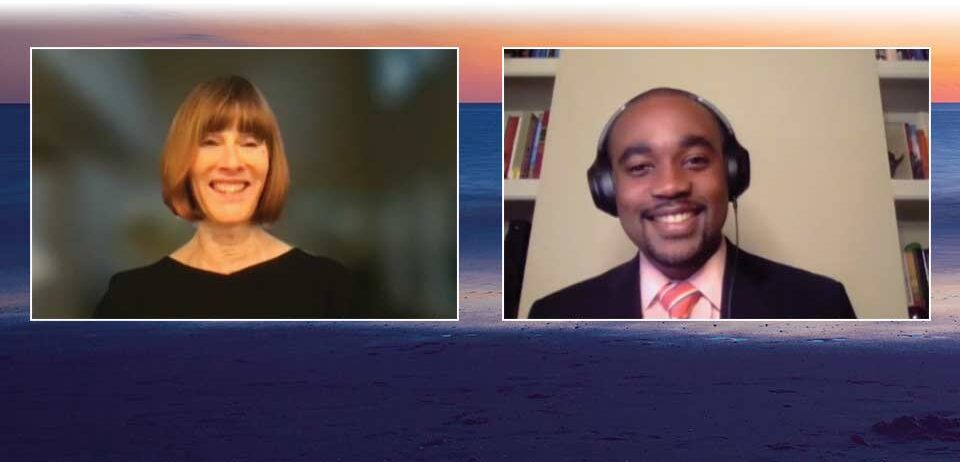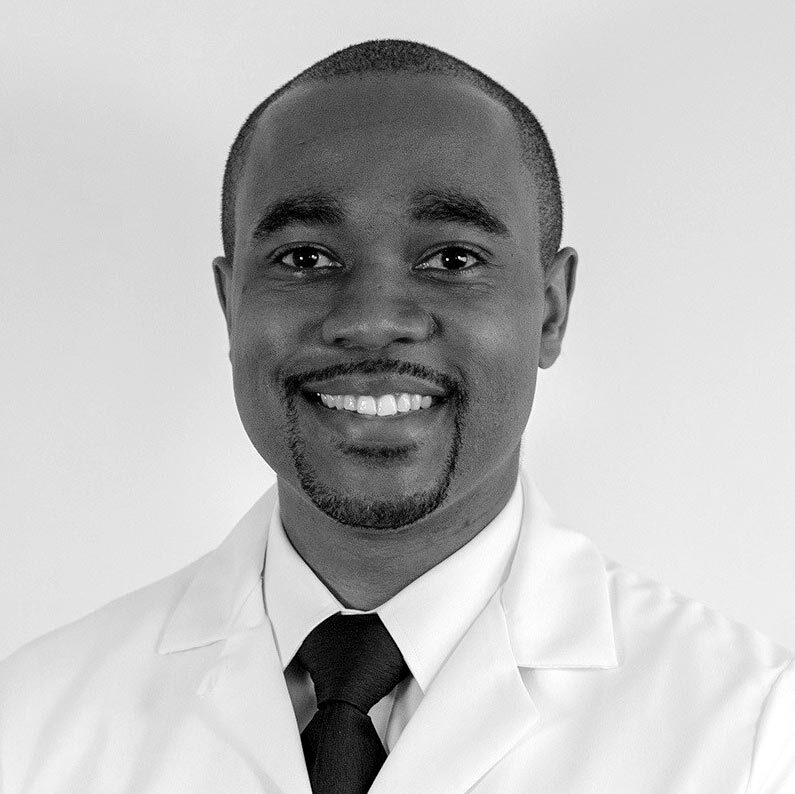
In 2019, Dr. Adamson received a three-year Dermatology Foundation Career Development Award for his study, “Optimizing Care Delivery and Health Equity in Patients with Melanoma.”
The DF recently had a chance to talk with Dr. Adamson about his deep care for patient advocacy, and the importance of the Dermatology Foundation’s support.
How can we address the disparity in patient care?
DF: Hi Dr. Adamson. I was looking at your Instagram account, and it’s very impressive.
Dr. Adamson: Well, my Twitter account is even better!
DF (laughing): I will check that out. The work you’re doing and the questions that you’re asking are so important. The line that jumped out at me about your work is “debunking misconceptions about skin.” Was that tied to your first project with the Dermatology Foundation?
Dr. Adamson: My Dermatology Foundation project was about understanding disparities related to the care received or not received from patients who are diagnosed with melanoma. I am an expert in melanoma. As the director of the Pigment and Legion of Melanoma Clinic at UT Austin, that specific patient population is especially interesting to me.
At the time I received the award, studies had shown that there were delays in the surgical treatment for patients with melanoma in the Medicare population. But little was done looking at other groups, specifically other insurance types. We embarked on a study that showed patients who had Medicaid had a higher likelihood of delays in surgical treatment for their melanoma.
Our findings sparked my interest in further diving into why there are these delays and whether they affect the actual survival rate for patients. Were there any other associated treatments that also may be delayed or not received by patients with melanoma?
The Dermatology Foundation was critical in my being able to have the space and time to do this kind of work.
DF: Can you say more about that?
Dr. Adamson: With that space, I was able to venture into other areas that aren’t directly germane to my proposed project but were tangentially related and equally important. One of those was looking at the relationship between sun exposure and melanoma in people of color.
There had been a lot of misconceptions about the strength and the level of evidence for the association between those two, which has been shown in lighter skin populations.
So I went on a quest to present the evidence that the focus on sun exposure to prevent melanoma is likely not a good one and a distraction from trying to figure out why there are differences in the outcomes for people of color who get melanoma. Because people of color who get melanoma often get it at later stages when the likelihood of survival is lower.
There was this idea that if we just tell people of color to wear sunscreen somehow, we will mitigate these disparities.
Some of the work that I did that was supported by the Dermatology Foundation showed that really isn’t the case. There’s very little data to support photoprotection as a means of reducing the risk of melanoma, and certainly, there’s no data to support that it will reduce melanoma health disparities. The work from my group and others seems to signal that disparities are more related to treatment and access-to-care.

DF: Where has this led you?
Dr. Adamson: The study that sparked the grant was looking at whether there were delays, so one of the aims of the grant was to see whether there were associated survival differences between whether you had guideline-concordant, timely surgery versus not. And we showed, in fact, yes, there is a decrease in survival associated with having a delay in your melanoma surgery.
Another part of the grant that we wanted to look at was whether a patient’s demographics were associated with getting guideline-concordant care for systemic treatment for melanoma, like immunotherapy.
Immunotherapy has revolutionized the treatment of late-stage melanoma. But immunotherapy is also really expensive. Our research group wanted to look at, depending on your insurance type, are there differences in the association of you receiving treatment, with systemic therapy such as immunotherapy or targeted therapy?
And what we found is, in fact, yes, there’s also a difference there. If you had Medicaid, you are less likely to receive treatment for metastatic melanoma, which is troubling, right?
DF: What is your hope for where this work can go?
Dr. Adamson: Looking at population-based data and data sets can only get you so far. The art of medicine is practiced at the patient level and not always at the population level.
So, really understanding why there are delays and lack of receipt of care and guideline-concordant care requires you actually to talk to patients and find out their journey. What were some barriers that they encountered related to their care? Why did they make certain decisions about the care they received?
That’s where the research with the help of the Dermatology Foundation is taking me now. It’s getting involved in doing qualitative work around patients who might not have the same access to treatment or have had delays or the lack of receipt of certain guideline-concordant treatment and figure out what was the decision-making treatment around that.
DF: Because then you can maybe start making real changes once you go.
Dr. Adamson: Right. And you can design and deploy an intervention. You know, you need to know whether an intervention is better as a patient-focused one or a system one. To understand this, you need the patient voice in research which is sometimes undervalued. And that’s kind of where the research has ultimately taken me.
You know, I’ve gone from looking at the big population down to the individual person to try to make sense of some of the larger patterns that we see in data.
“I feel very lucky that the Dermatology Foundation decided this was an important enough topic not only to invest in but also to invest in me in my future. Because getting this award also helped me get other grants and funding opportunities.”
DF: I can hear the deep care in what you’re doing, in the work you’re doing, that is very moving.
Dr. Adamson: Thank you.
DF: I appreciate that you said, “The art of medicine is practiced at the patient level.” That is powerful.
Dr. Adamson: I feel very lucky that the Dermatology Foundation decided this was an important enough topic not only to invest in but also to invest in me in my future. Because getting this award also helped me get other grants and funding opportunities. It really was what served as a launching pad for doing a lot of work in melanoma and becoming an expert. When I first started researching in the melanoma space, I was an unknown entity, now I’ve had the opportunity to published a in the space, and people know who I am.
DF: Where do you hope to see yourself going in the next part of your career?
Dr. Adamson: I hope that my future involves growing my research team to a point that I can also mentor future winners of the Dermatology Foundation awards so that I can also impact the future of other people’s questions that they might have, not necessarily related to melanoma, but to any of the many thousands of diseases and disorders that are diagnosed by dermatologists and many of them understudying.
DF: And where do you hope the DF can go in the next 60 years?
Dr. Adamson: I hope the Dermatology Foundation continues to support even more the careers of diverse scientists, and I mean diverse in many ways, whether that is race, socioeconomic, gender, orientation, etc. And support research in some of these understudied areas in dermatology.
I think they do a good job now, but more would also be better.
DF: Here’s to another 60 years of more!
“The Dermatology Foundation is one of the most generous dermatology organizations around. That speaks to the leadership they have. And I think the fact that so many people continue to give reflects that.”
Dr. Adamson: And I want to say one more thing—the Dermatology Foundation is one of the most generous dermatology organizations around. That speaks to the leadership they have. And I think the fact that so many people continue to give reflects that.
I would also say that the Dermatology Foundation annual conference is one of the best conferences for dermatologists to attend. And I didn’t know that until I finally went to one, and it was amazing. The audience, the speakers, it’s just really fantastic.
DF: Thank you so much, Dr. Adamson, for the work you are doing and for talking with us today.
Adewole S. Adamson, MD, MPP received the Public Health Career Development Award in 2019 and 2020 for his research, ‘Optimizing Care Delivery and Health Equity in Patients with Melanoma.’


